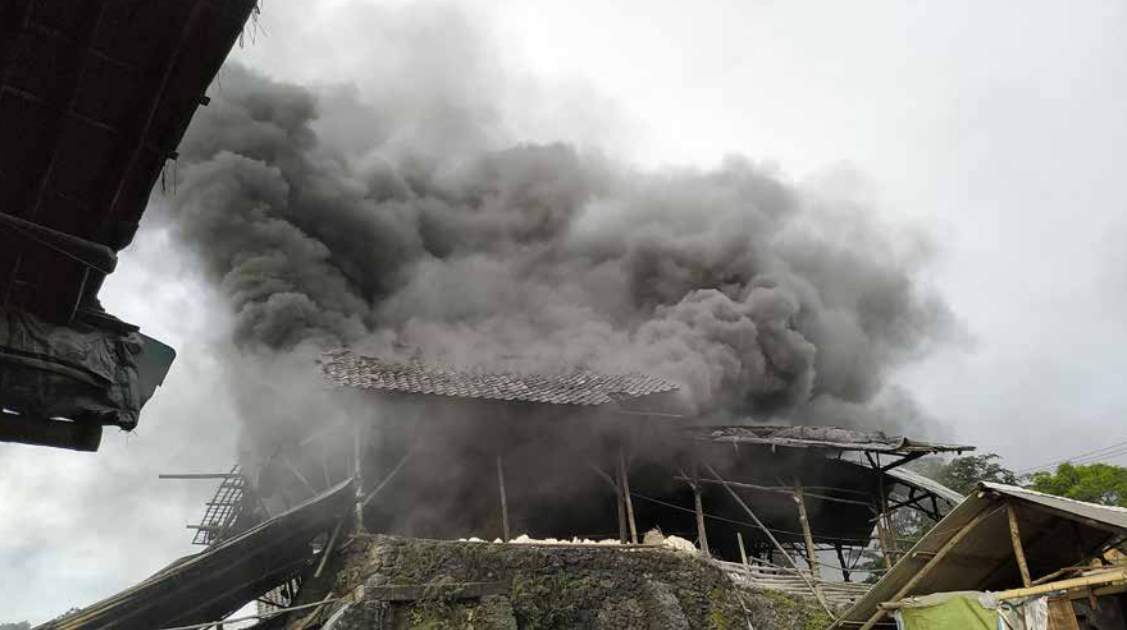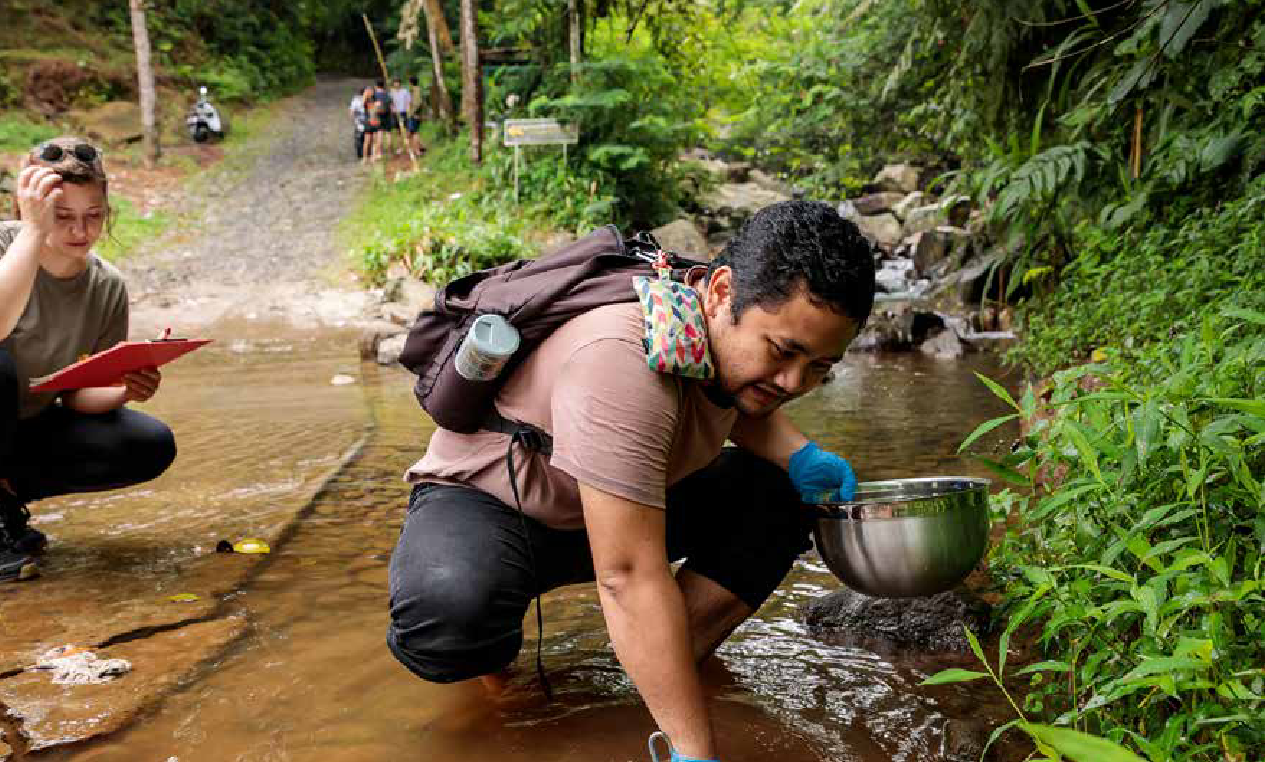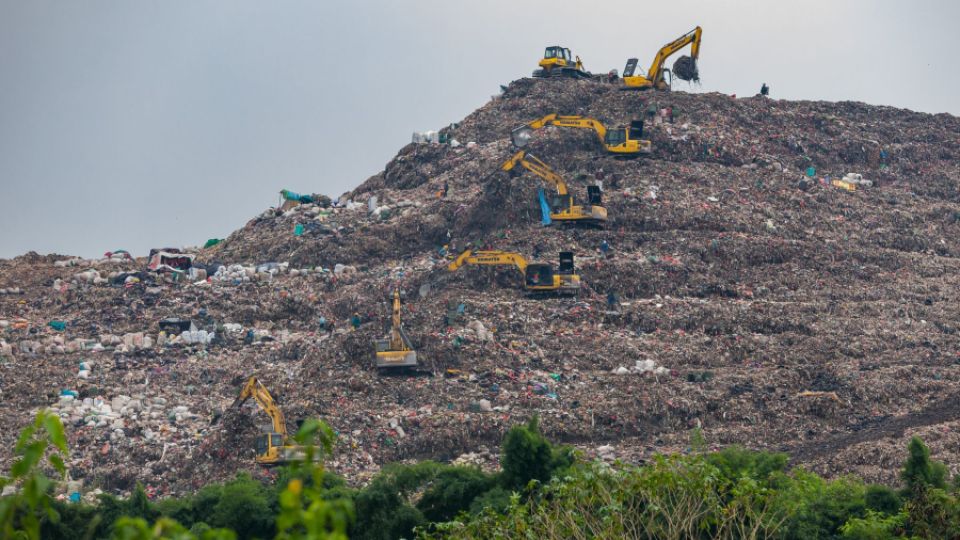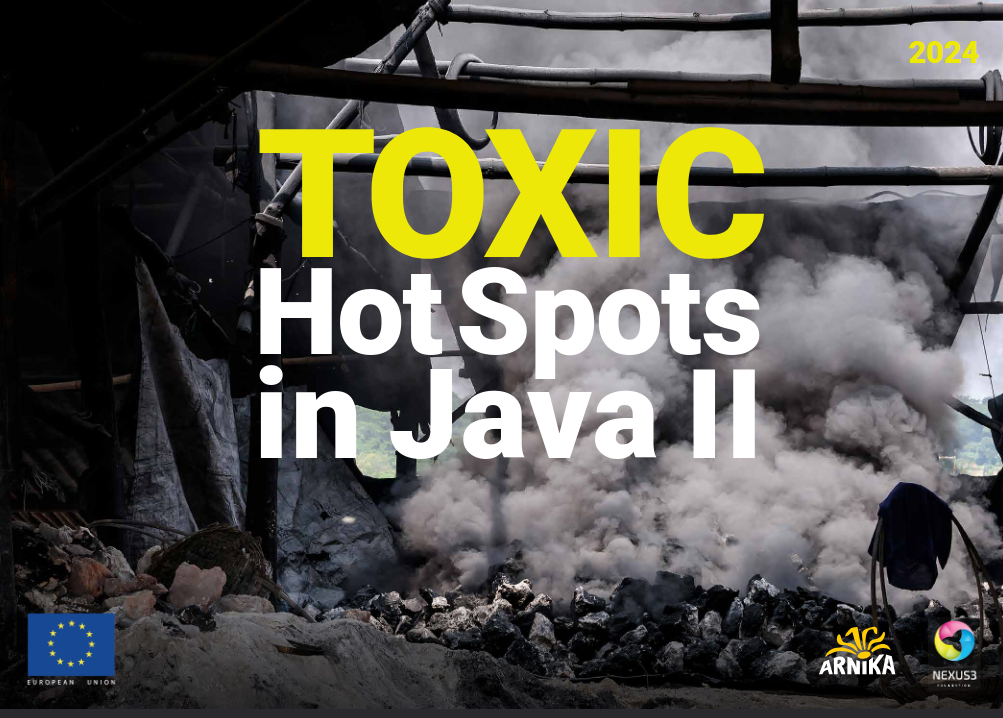JAKARTA/PRAGUE - Experts from Arnika (the Czech Republic) and Nexus3 Foundation (Indonesia) in cooperation with the International Pollutants Elimination Network (IPEN) have published a study revealing massive pollution at industrial and plastic waste hotspots in Java. It highlights a presence of heavy metals as well as persistent organic pollutants (POPs) in soil or eggs. Scientists call for both international restrictions on toxic additives in plastics1 and the creation of a functional pollutant release and transfer register (PRTR) in Indonesia.
Read the whole study HERE or on Researchgate
The joint study highlights specific hazards, such as the contamination of several areas with heavy metals and persistent organic pollutants associated with plastics, or the highly polluting operations of some small and medium-sized industries. But the authors also point to a global dimension: intense local pollution as one of the consequences of globally unsustainable plastic waste management, a systemic problem of weak regulation and enforcement, leading to the import of plastic waste and its hazardous incineration.
Experts mapped pollution by different toxic substances in samples such as soil, ash or free-range chicken eggs from different locations,2 focusing on those plagued by inadequate plastic waste management. In the vicinity of the Bantar Gebang landfill, they found not only heavy metal pollution in the soil, but also significant levels of toxic substances in fly ash from the waste incinerator. In the soil samples from the Karawang regency, they also detected "extremely high" levels of lead and dioxins, highlighting the need for urgent remediation and further monitoring.
The study also looked at contamination by so-called POPs, "persistent organic pollutants" - a range of hazardous substances that persist in the environment for a very long time and threaten long-term accumulation, especially when they enter the food chain. Dangerous - and repeatedly documented in Java - is, for example, the use of plastic and rubber waste as fuel in tofu factories.
Scientists have therefore measured the presence of many toxic substances (e.g. polychlorinated biphenyls - PCBs, and polychlorinated dibenzo-p-dioxins and dibenzofurans, simply dioxins) in 20 samples of eggs from free-range hens: and their findings are alarming.
“The contamination of eggs with dioxins and dioxin-like compounds represents some of the highest levels ever recorded in Asia and globally,” states the study, adding that by eating just a half of an egg from free-range hens "at any of the sampled localities, an adult Indonesian can reach or exceed the tolerable daily intake of dioxins and/or dioxin-like compounds by up to 48 times”. More of the egg samples – especially from Bangun, Bantar Gebang, and Tangerang – were also contaminated by particularly concerning Per- and Polyfluoroalkyl Substances (PFAS).3 The serious contamination of both the environment and the food chain with POPs is attributed, for example, to the use of waste as fuel in lime kilns in Karawang.

Burning of plastic waste in lime kilns in Karawang generates toxic fumes. Photo: Nexus3, March 2021
Experts also included a set of recommendations, starting with a ban on the burning of plastic waste as fuel. They also propose to consider ash from waste incineration and metallurgy as hazardous waste and to monitor its levels of POPs. But they also address the systemic level of the problem, such as a need of a strict enforcement of the international regulations against imports of hazardous plastic waste.4
Cautious hope has long been placed on the so-called Plastic Treaty, a potential international legally binding instrument under negotiation since 2022 at the United Nations, aiming to solve the global overwhelming by plastics. Environmentalists and scientists alike have been warning for a long time that the current focus of the international treaty mostly ignores the problem of harmful chemical admixtures, among other because of extensive lobbying by industry. But “[the] Treaty should focus on the chemical content of plastic materials and prohibit materials such as PVC or containing brominated compounds,” study urges.
The lead author of the study, Arnika's expert on toxic substances in waste and the environment, Jindřich Petrlík, has repeatedly participated in the negotiation of the plastic convention and summarizes the situation: “The chemical and fossil fuel industries would obviously like to reduce the problem of plastic pollution to mere litter. However, research has consistently shown that an equally serious problem lies in the toxic additives in plastics, which do not disappear even with recycling. Instead, these toxic chemicals spread virtually everywhere and affect everyone through established waste disposal practices.”

Sampling of sediment at reference site. Photo: Ondřej Petrlík, Arnika, December 2022.
Experts and local environmental organizations also agree on what could help directly in Indonesia. It lacks a consistent and widely accessible Pollutant Release and Transfer Register (PRTR): a system that allows many other countries around the world to monitor industrial pollution from a range of chemicals. Findings from the current study clearly indicate that Indonesia's PRTR needs to include not only large-scale operations, but also smaller companies now forming some of the worst pollution hotspots. It should record heavy metals as well as POPs, including PFASs, and other toxic admixtures of plastics.
It was the creation of Indonesia's PRTR that was the focus of an international conference organised in Jakarta in early June by Arnika and Nexus3. There, these NGOs presented, among other things, a web application allowing the public to look at the main hotspots of various pollution across the country. The organizations also organized a webinar on the topic of renewable energy, during which experiences with renewable resources and the green transition from Europe and Indonesia were shared.
Nexus3 Foundation and Arnika have been working together since 2021 in an effort to create a network of NGOs that would monitor pollution in the country and strengthen the role of citizens, namely academia, impacted communities, and civil society in preventing toxic pollution and its impact on human health.

Annexes
1 - Plastics contain various chemical additives that make them hard to be destroyed or recycled. A study from 2021 identified “more than 10,000 relevant substances” in plastics, and a more recent study published in 2024 found more than 16,000 such substances. Over 4200 plastic chemicals are “of concern” because they are persistent, bioaccumulative, mobile, and/or toxic (PBMT). Over 1300 chemicals of concern are known to be marketed for use in plastics, and 29–66% of the chemicals used or found in well-studied plastic types are of concern.
2 - Samples of plastic waste, ash from incinerated waste (in Karawang), soil, sediments, rice and other plants, and free-range chicken eggs were analyzed for their content of individual persistent organic pollutants and their groups and heavy metals in certified laboratories in Czech Republic, Netherlands and Germany.
3 - Per- and polyfluorinated substances (PFASs) are a large group of several thousand man-made organic substances produced since the 1950s. Most PFASs are persistent, i. e. resistant to degradation. PFASs are used to repel water and grease from paper food packaging, outdoor clothing, and even carpets, for example. They are mainly known for their use in Teflon and gore-tex. Humans ingest PFAS mainly in food and water. Some PFAS are considered suspected human carcinogens. The increased risk of kidney, ovarian, testicular, and prostate cancer in particular has been discussed. Some PFASs are reprotoxic (reduce fertility in women), increase the risk of high blood pressure in pregnancy, are associated with preeclampsia (placental disease) or lower birth weight in newborns. PFAS can damage the immune and endocrine systems.
4 – I. e. the Basel Convention: an international treaty, aiming to reduce the international movements of hazardous waste, and especially to restrict transfers of hazardous waste to the Global South by the OECD countries. Most of the world’s countries (excluding the United States, for example) have also agreed on a 2019 amendment to the Convention, which adds plastic waste to the list of regulated materials, thus officially cutting its exports. The United States is not even a party to this convention.








